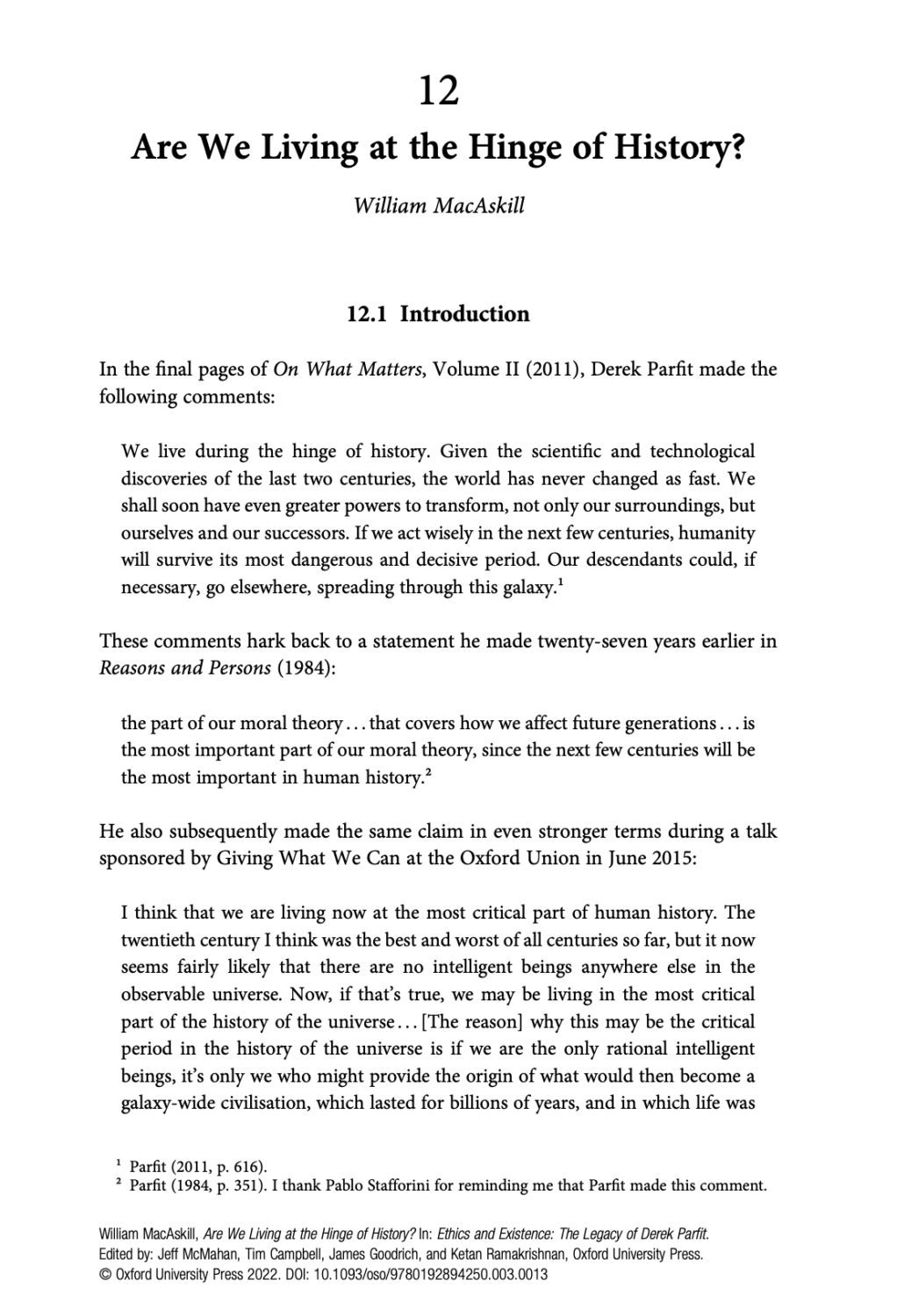Are we living at the hinge of history?
William MacAskill (Global Priorities Institute, Oxford University)
GPI Working Paper No. 12-2020, published in Ethics and Existence: The Legacy of Derek Parfit
In the final pages of On What Matters, Volume II, Derek Parfit comments: ‘We live during the hinge of history... If we act wisely in the next few centuries, humanity will survive its most dangerous and decisive period... What now matters most is that we avoid ending human history.’ This passage echoes Parfit's comment, in Reasons and Persons, that ‘the next few centuries will be the most important in human history’.
But is the claim that we live at the hinge of history true? The argument of this paper is that it is not. The paper first suggests a way of making the hinge of history claim precise and action-relevant in the context of the question of whether altruists should try to do good now, or invest their resources in order to have more of an impact later on. Given this understanding, there are two worldviews - the Time of Perils and Value Lock-in views - on which we are indeed living during, or about to enter, the hinge of history.
This paper then presents two arguments against the hinge of history claim: first, that it is a priori extremely unlikely to be true, and that the evidence in its favour is not strong enough to overcome this a priori unlikelihood; second, an inductive argument that our ability to influence events has been increasing over time, and we should expect that trend to continue into the future. The paper concludes by considering two additional arguments in favour of the claim, and suggests that though they have some merit, they are not sufficient for us to think that the present time is the most important time in the history of civilisation.
Other working papers
Consequentialism, Cluelessness, Clumsiness, and Counterfactuals – Alan Hájek (Australian National University)
According to a standard statement of objective consequentialism, a morally right action is one that has the best consequences. More generally, given a choice between two actions, one is morally better than the other just in case the consequences of the former action are better than those of the latter. (These are not just the immediate consequences of the actions, but the long-term consequences, perhaps until the end of history.) This account glides easily off the tongue—so easily that…
What power-seeking theorems do not show – David Thorstad (Vanderbilt University)
Recent years have seen increasing concern that artificial intelligence may soon pose an existential risk to humanity. One leading ground for concern is that artificial agents may be power-seeking, aiming to acquire power and in the process disempowering humanity. A range of power-seeking theorems seek to give formal articulation to the idea that artificial agents are likely to be power-seeking. I argue that leading theorems face five challenges, then draw lessons from this result.
The end of economic growth? Unintended consequences of a declining population – Charles I. Jones (Stanford University)
In many models, economic growth is driven by people discovering new ideas. These models typically assume either a constant or growing population. However, in high income countries today, fertility is already below its replacement rate: women are having fewer than two children on average. It is a distinct possibility — highlighted in the recent book, Empty Planet — that global population will decline rather than stabilize in the long run. …

